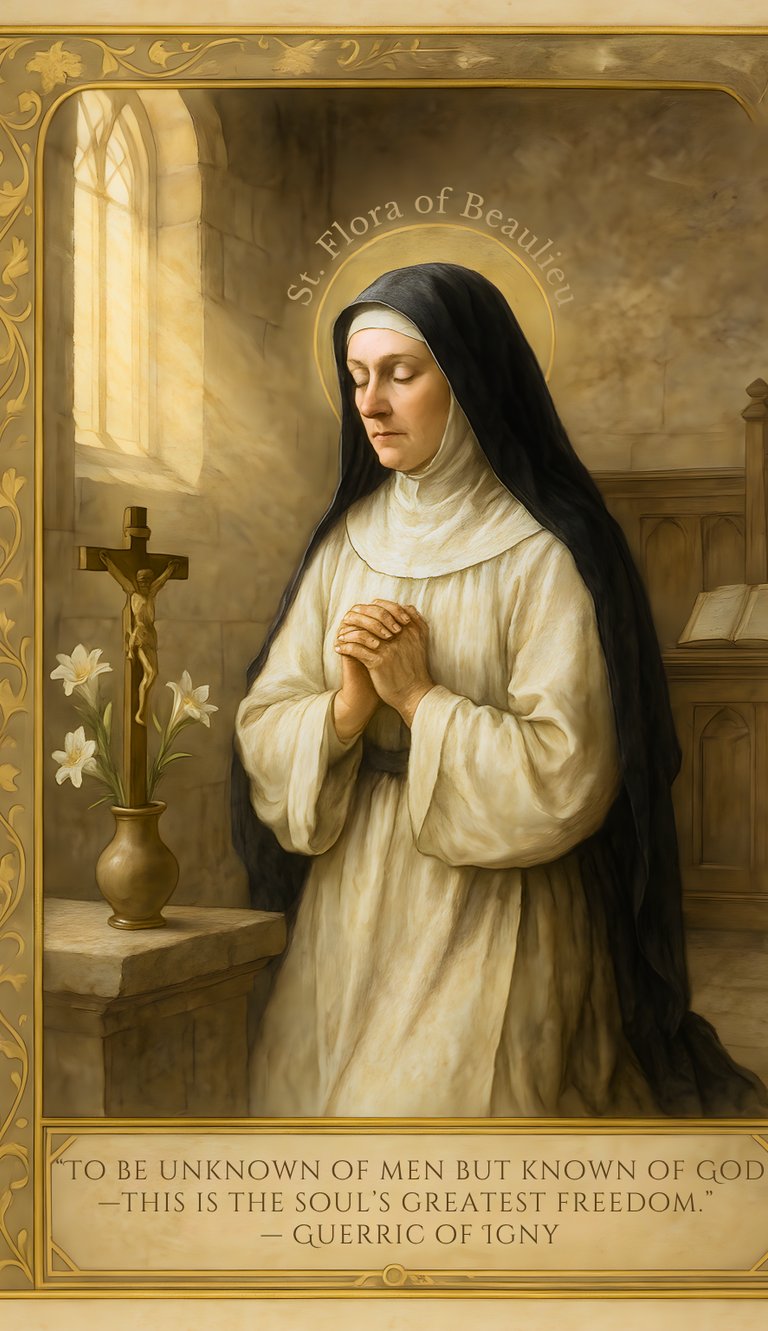Saint Flora of Beaulieu – The Hidden Lily of France
Feast Day: October 5 | Patronage: Purity and Interior Prayer
Halo & Light Studios
10/6/20251 min read


Click Link for a reel of Daily Dose of Saints and Faithful Art:
https://youtube.com/shorts/0B-gbEHCuhA
Fellow Pilgrims in Christ,
In the gentle hills of southern France during the early 1300s, a young woman named Flora of Beaulieu turned from the privileges of nobility to embrace the quiet life of a Cistercian nun. Born around 1300 in Auvergne, she entered the Abbey of Beaulieu, where silence, simplicity, and prayer shaped daily life. Misunderstood for her mystical fervor, Flora endured suspicion and ridicule from some of her sisters, yet she answered every wound with humility and obedience, offering her hidden suffering to Christ.
Flora lived in a century of great tension and transition. The papacy had left Rome for Avignon (1309–1377), placing the Church under the shadow of French politics and prompting cries for reform. Yet monastic communities like Flora’s became sanctuaries of authentic renewal—where prayer, penance, and simplicity preserved the heart of Christian life.
Beyond convent walls, Europe trembled. The Great Famine (1315–1317) devastated crops; poverty deepened; and by 1337, the Hundred Years’ War erupted between England and France. Flora’s final years unfolded on the eve of the Black Death, which would soon claim millions. While kingdoms faltered, she and her sisters prayed, unseen, for a suffering world.
In the stillness of her cell, Flora found divine intimacy. Witnesses said her face sometimes glowed during prayer and that visions of Christ and the Virgin Mary consoled her in trial. When she died around 1347, peace filled the convent, and miracles followed at her tomb.
Saint Flora was never famed for preaching or worldly deeds; her sanctity bloomed in silence. She reminds us that holiness is not measured by recognition but by love—by the secret faithfulness of souls who belong entirely to God. In an age of turmoil, she became a quiet light, proving that when the world darkens, grace still flowers in hidden places.
“To be unknown of men but known of God—this is the soul’s greatest freedom.” — Guerric of Igny
